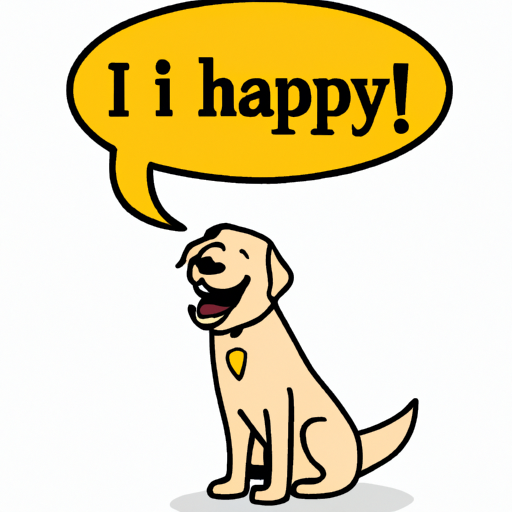As a caregiver, it’s important to understand the emotional language of your furry companion. Understanding your dog’s communication nuances can deepen your bond and make caring for them simpler and more rewarding.
Understanding Dog Growls
Dogs, like humans, have a complex language of sounds, body language, and facial expressions to communicate their emotions. One of the most misunderstood sounds is the growl. While typically associated with aggression, dogs can also growl when they are happy.
Here’s a table to help you better understand the different types of growls:
| Type of Growl | Meaning |
|---|---|
| Play Growl | A growl during play, often seen when the dog is excited |
| Aggressive Growl | A deeper, louder growl when the dog feels threatened |
| Happy Growl | A soft growl when the dog is feeling content or wants attention |
Recognize a Happy Growl
Recognizing a happy growl is all about context. The sound might be similar to an aggressive growl, but the body language and situation can tell a different story. Here are a few signs your dog might be “happy growling”:
- Relaxed body language
- Wagging tail
- During a belly rub or cuddle session
Why Dogs Growl When Happy
Dogs growl when they’re happy for a few reasons:
- To express pleasure: Just as humans sigh or hum when contented, dogs might growl softly when they’re feeling good.
- To get your attention: Your dog might have learned that growling gets a reaction from you, like more petting or playtime.
How to Respond to a Happy Growl
When your dog growls happily, it’s a beautiful conversation between you and your pet. Here are some ways to respond:
- Continue what you’re doing, whether it’s petting, playing, or cuddling.
- Speak to them in a soft, soothing voice to let them know you understand.
FAQ
Here are some frequently asked questions about dogs and their growling behavior.
Q: Is a growling dog always aggressive?
A: No, dogs growl to communicate a range of emotions, including happiness.
Q: How can I tell if my dog’s growl is happy or aggressive?
A: Pay attention to the context, body language, and the situation in which the growling occurs.
Q: Should I discourage my dog from growling?
A: No, growling is a form of communication. It’s important to understand the meaning behind the growl rather than stifling it.
Q: Can all dogs growl when happy?
A: While most dogs can, the frequency and intensity of growling can vary depending on the breed and individual dog’s personality.
Remember, as a caregiver, your role is to listen and respond to your dog’s emotional cues. Understanding your dog’s growl will not only prevent any miscommunication but will also strengthen your bond with your four-legged friend.



